A List of College GIS Certificate Programs in Canada

So many GIS certificate programs to choose from, eh
While many prefer going the full-fledged approach of getting a GIS degree or GIS certificate, you can’t discount going to a college or technology institute to earn your very own GIS diploma.
You get the practical skills employers are looking for like GIS programming, remote sensing, and even surveying. This means you are better positioned to learn faster, which is crucial in today’s world.
There are some great schools in Canada – COGS, and BCIT are stand-outs. But there’s really so many to choose from, eh? Today, we outline all the GIS certificate colleges in Canada that will pave the way for your very own GIS career path.
British Columbia
Beautiful British Columbia offers college GIS certificate programs from the following institutes:
- British Columbia Institute of Technology (BCIT) Advanced GIS Diploma
Vancouver Island University (VIU) Advanced Diploma in GIS Applications- Selkirk College’s Advanced Diploma and Bachelor’s Degree
- Simon Fraser Bachelor of Science in Geographic Information Science
- Okanagan College GIS Essentials Microcredential
1. British Columbia Institute of Technology (BCIT)
If you are serious about learning GIS and developing your skills, then you should go to the British Columbia Institute of Technology (BCIT).
People have nothing but good things to say about BCIT’s Advanced GIS Diploma program. Its intense schedule and classes help you achieve well-rounded skills. The work-based practicum boosts your CV. It’s highly regarded by employers in Canada.
If you can’t make it to class, you have the online education route. Although face-to-face program delivery can give you the necessary feedback, especially in labs and programming – online education will give you the much-needed self-discipline and motivation to complete the Advanced GIS certificate.
2. Vancouver Island University (VIU)
Unfortunately, the Advanced GIS Technology diploma at Vancouver Island University has been discontinued
Learn face-to-face in Nanaimo, British Columbia in VIU’s Advanced Diploma in GIS Applications. Alternatively, online classes could be spread out for more convenience. No matter what, in the end, you earn an advanced GIS diploma.
Both options help students secure full-time employment in the field of GIS. As with the other GIS programs, training is concentrated in ArcGIS, the most popular GIS software in the world.
VIU now offers an intriguing Master’s GIS program as well.
3. Selkirk College
You should take a close look at what Selkirk College has to offer. They combine classroom study with coop or personally developed projects. There are two main types of programs they offer, including and Advanced Diploma and Bachelor’s Degree.
Their lab is modern with dedicated workstations. The Applied Geospatial Research Center is attached to the college. The pristine British Columbia Kootenays area is beautiful if you like to hike or ski.
4. Simon Fraser University
Get certified with a Bachelor of Science in Geographic Information Science at Simon Fraser University.
How is SIS different from GIS? It tackles a wider array of spatial-related fields. SIS includes Geographic Information Science; spatial analysis and modeling; geo-visualization; geospatial interface research; remote sensing; and mobile networks.
Put data in a geographical context with this modern approach to spatial entity information.
5. Okanagan College
The Okanagan College is located in beautiful Kelowna, BC with campuses in Penticton and Vernon. The Salmon Arm hosts the campus for GIS studies.
For the GIS Essentials Microcredential, students have to complete hands-on projects that are perfect as a segway into your career. It includes 3D modeling, database management and remote sensing.
The Prairies
The Prairie Provinces consisting of Alberta, Saskatchewan, and Manitoba have the following options to obtain a diploma or certificate in GIS:
- Southern Alberta Institute of Technology (SAIT) Bachelor of Applied Technology Geographic Information Systems
- Northern Alberta Institute of Technology (NAIT) Geographic Information Technology Certificate
- University of Calgary’s Masters in GIS
- Mount Royal University’s Spatial Data Science Certificate Program
- Saskatchewan Polytechnic Geographic Information Science for Resource Management Certificate
- Red River College (RRC) Advanced GIS Technology Certificate – This program has been discontinued
- Assiniboine Community College (ACC) GIS Advanced Diploma
1. Southern Alberta Institute of Technology (SAIT)
If you live in the southern part of Alberta or anywhere really, you should consider enrolling in their Bachelor of Applied Technology Geographic Information Systems.
It’s a great way to familiarize yourself with Esri ArcGIS, which is the leading GIS software in the industry. The GIS program practicum is rumored to be a challenge, as it can be difficult to find one. The same goes for its intense time commitment as students need to spend vast amounts of time on campus.
2. Northern Alberta Institute of Technology (NAIT)
The NAIT program is geared to the whole industry and practice of GIS with classes from ArcGIS to project management and industry best practices. Their Geographic Information Technology Certificate is one of a kind.
What’s unique about the NAIT GIS program is the delivery in both Geomedia and ArcGIS. The classes are unique and interesting. It has web mapping with open source GIS software and even Oracle spatial fundamentals courses.
3. University of Calgary’s Masters in GIS
The Masters in GIS (MGIS) program at the University of Calgary consists of 10 courses. While 5 courses are part of the core course load, the remaining will also build on GIS skills.
The Masters in GIS program covers applications, theory, spatial modeling, remote sensing, and statistics. It also consists of research projects where students get to develop skills in the topic of their choice.
University of Calgary’s Masters in GIS program is one of the best programs in Canada. Students who are looking to seriously develop their skills and become GIS professionals should consider the MGIS program.
4. Mount Royal University
The Spatial Data Science Post-Bachelor Certificate Program at Mount Royal University consists of 10 courses (30 credits), which can be completed in one year by taking five courses during both the fall and winter semesters.
The post-bachelor certificate program offers a solid foundation in managing, analyzing, visualizing, and applying data with geospatial tools essential for location-based IT solutions.
Combining principles from computing, data science, and geography, students will use advanced software and data science techniques to uncover insights in real-world scenarios.
5. Saskatchewan Polytechnic
The Geographic Information Science for Resource Management Certificate is a one-year certificate program offered full-time at the Saskatchewan Polytechnic Prince Albert campus.
This program gives you hands-on learning and practical experience that employers are looking for from GIS graduates. The field experience is also something unique to the program. 80% of GIS grads find jobs after six months of graduation working as mapping technicians, GIS specialists, cartographers, and other titles.
6. Red River College (RRC)
The Advanced GIS Technology diploma at Red River College has been discontinued
The Advanced GIS Technology diploma at Red River College is a one-year intense program. It combines a mix of remote sensing, cartography, GIS modeling, CAD, and other courses to build your knowledge in GIS.
It also connects students with potential employers through a thesis research project. This gives students a taste of how GIS is being used in the industry. However, you need a Bachelor’s Degree to get into this program as a prerequisite.
7. Assiniboine Community College (ACC)
Available through distance education and face-to-face, the Assiniboine College GIS Advanced Diploma is chosen by many Manitobans as a sure way to get the GIS knowledge they need.
With approximately 93% of grads finding employment in their field, the courses cover everything from image analysis to spatial statistics. It’s interesting to see a precision agriculture techniques course in the curriculum that shows how big agriculture is an industry in Manitoba.
Ontario
The largest province in terms of population, Ontario, has a plethora of options to earn a certificate in Geographic Information Systems. Here they are in no particular order:
- Ryerson Certificate in Applied Digital Geography and GIS
- Queen University Certificate in Geographic Information Science
- York University Certificate in Geographic Information Systems (GIS) & Remote Sensing
Fleming College Geographic Information Systems Cartographic SpecialistNiagara College GIS Certificate- Algonquin College GIS Graduate Certificate
- University of Waterloo Diploma of Excellence in GIS
- Ontario Learns GIS Certificate (Humber College, Durham College, George Brown College, Seneca College, Centennial College, Mohawk College)
1. Ryerson University
There’s nothing but positive about Ryerson’s Certificate in Applied Digital Geography and GIS. It balances conceptual and practical training with lectures and laboratory learning environments. Ryerson’s Certificate in Applied Digital Geography and GIS is well-recognized in the GIS industry. It also offers distance education as this certification is primarily designed for part-time students.
Ryerson helps you accelerate your GIS job probabilities by earning the right amount of hands-on experience. Essentially, you build the right foundation to get your foot in the door. The distance learning option is also available for students who can’t make it to campus with busy lives.
2. Queen’s University
The Certificate in Geographic Information Science delivers a thorough understanding of cartography, remote sensing, and GIS techniques. In addition to completing a degree, Queen’s University students can also achieve a Certificate in Geographic Information Science. All undergraduate students regardless of their degree concentration are eligible to pursue the Certificate in Geographic Sciences.
Queen’s University’s GIScience certification gives you a blueprint for a career in GIS. You build a wealth of practical knowledge and GIS uses and applications in the workplace. This program understands how GIS is becoming an affordable technology that can be integrated into nearly every corporation, governmental agency, or non-profit organization.
3. York University
Get certified by York University’s Certificate in Geographic Information Systems (GIS) & Remote Sensing. This program understands that together GIS and remote sensing are the backbone of many decision-making systems and location-based services emerging in the decades to come.
York University is far more in-depth. It’s heavily loaded in remote sensing which is a good thing. Satellite data is becoming more abundant and free to the whole world. York University’s GIS program puts you on the right path for your own career in the field of GIS and remote sensing.
4. Fanshawe College
Fanshawe College’s Certificate in Geographic Information Systems has both traditional and online classroom options. It’s an eight-month program to help students master the concepts of GIS, remote sensing, GIS programming, spatial analysis and modeling, photogrammetry, web mapping and CAD.
The program is project-based, software-intensive, interdisciplinary, and focused on building flexible, current, high-end applied skills. Students require their own laptops in this GIS certificate program. It teaches everything from the theory behind GIS to grasp an understanding of the important fundamentals. You will also get the hands-on skills to help you strive in the GIS industry.
5. University of Waterloo
The Geospatial Centre at the University of Waterloo is your home for anything related to GIS. This includes geospatial data, cartography, and any mapping software. There was a Diploma of Excellency available at this university but it appears to be a bit in limbo. It’s best to contact the Geospatial Centre at the university for any availability.
Just a warning that you may not be able to grasp all the important concepts with just databases, spatial analysis, management issues, and an introduction to GIS. It might look good on your CV, but in all practicality, this program needs more core courses like programming, remote sensing, and CAD.
6. Fleming College
Fleming College gets a bit of downgrade for its GIS program. You can really only take a couple of intro courses here.
Even so, you can still walk away from this program, with the right skills for spatial decision-making in the real world.
7. Niagara College
Niagara College offers limited GIS courses, where you get hands-on experience working in GIS and GIS-related subjects. But it also teaches you the concepts and skills that you will use every day.
8. Algonquin College
The GIS Graduate Certificate Program at Algonquin College is a three-semester program with the option for a co-op. Students need a university degree or 2-3 years from a college diploma program to enter the program.
It gives the best of all aspects of GIS – cartographic design, application and modeling, and remote sensing. Classes are offered in the classroom and the lab.
9. Ontario Learns GIS Certificate
You might think I should list each one of these colleges as their own separate number on this list.
…But in reality, they ARE the exact same program.
It’s the GIS diploma in a tin can. Without the prestige as the other GIS certificate programs offered in Ontario, in each of these programs, you’re going to be taking the same eight courses, and you may even be using dated GIS software to top things off.
Here are the courses you are going to get in the Ontario Learns GIS Certificate program: Microsoft Access Specialist, Microsoft Access Expert, Introduction to Geographic Information Systems, Designing/Implementing/Managing a GIS, GIS Software – ArcView, Global Positioning Systems (GPS), Remote Sensing and Internet Mapping.
If you eat, sleep and breathe GIS, then you’re not going to enjoy the Ontario Learns GIS certificate program.
The colleges that offer the Ontario Learns GIS Certificate are Humber College, George Brown College, Seneca College, Centennial College, Mohawk College and Durham College.
The Maritimes
The Maritime Provinces (New Brunswick, Nova Scotia, Prince Edward Island, and Newfoundland) have a bit less to offer in college GIS certificate programs. But it does offer one of the most recognized programs in all of Canada, the Centre of Geographic Sciences (COGS):
- Centre of Geographic Sciences (COGS) Advanced Diploma in Geographic Sciences
- New Brunswick Community College (NBCC) Geographic Information Systems Certificate
1. Centre of Geographic Sciences (COGS)
Employers in the industry know which schools have better reputations, and hire accordingly. COGS has cemented itself in one of the top spots for GIS certification. Its history traces back to 1948.
COGS used to be its own college, then became part of Nova Scotia Community College (NSCC). You might have to move a distance to attend because COGS is located in Lawrencetown, Nova Scotia. But it’s well worth it.
On a scale of 1 to 10, COGS Advanced Diploma in Geographic Sciences is a definite 10. Furthermore, it has a two-year Diploma in Geographic Sciences for those who directly enter from high school and people with unrelated degrees.
2. Dalhousie University
Nova Scotia is home to two incredible GIS diploma programs. As part of the Certificate in Geographic Information Science at Dalhousie University, students must complete 2 mandatory courses (Geoscience Information Management and GIS Applications to Environmental and Geological Science) and must select 2 other courses from a list of others. For example, Space, Place, and GIS course has students learn to use GIS to address land use and site planning issues even in regards to examining legal, privacy, and ethical implications of using GIS data in the public realm.
All courses set the standard of B to complete. But the heart and soul of this program lies in the research project, as independent work from the student. The research project focus is on the methodological and organizational design, the application of appropriate GIS techniques, and the proper reporting of the results.
Dalhousie University has a strong reputation in terms of universities in Canada – it dates back to 1818. This program is no exception as it’s high on the list for teaching students the necessary skills on how to design, manage, and employ methods in Geographic Information Science (GIS).
3. Memorial University (MUN)
Memorial University offers a Diploma in Geographic Information Science (GIScience) located in St. John’s, Newfoundland. Students have to be registered in a Bachelor of Arts or Science Degree program.
What I like most about MUN’s GIScience diploma program is the wealth of knowledge you’ll get for practical GIS applications. This is why the program requires students to complete two instructional field placement courses. Students can apply what they’ve learned in the classroom to real-life situations.
4. New Brunswick Community College (NBCC)
Update: As of 2004, the GIS Post-Diploma Technology Program is no longer part of NBCC.
The New Brunswick Community College (NBCC) GIS Post-Diploma Technology Program used to be all the buzz. Back in 2006, Esri presented the college with an award of excellence for their Post-Diploma in GIS, and college graduates were extremely successful at finding meaningful careers in GIS.
NBCC is quiet as of late, and it’s unclear whether or not their program still exists – as it’s not listed in their college GIS certificate listings.
READ MORE: GIS Online Certificate Programs

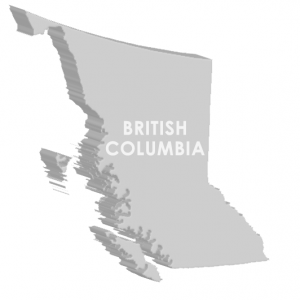
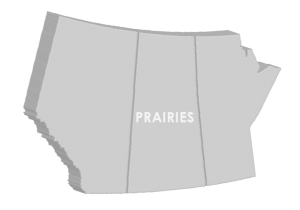
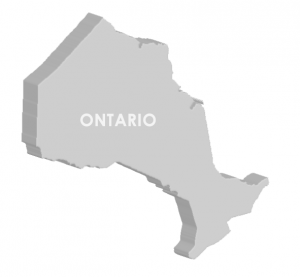
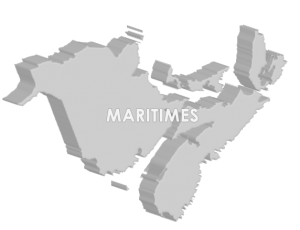

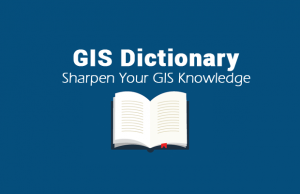


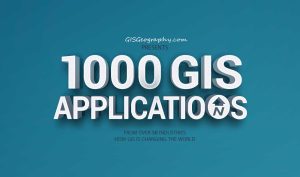
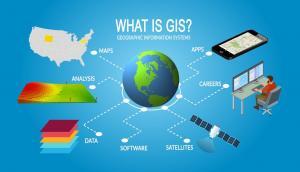
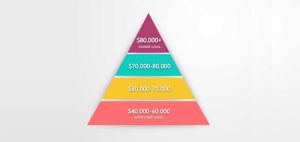

Hi GIS Geography,
Would you guys mind updating this web page?
A lot of these programs either no longer exist or have changed names.
Regards,
Markus
I gave it an update. Yes, I agree. Lots has changed names or no longer exist. Should be good now.
Hello folks, I’m SHS graduate from Ghana. Am interested in the of GIS. When would this years admission form is gonna be open for applicants. Needs more info.
Hi
I am interested in remote sensing and GIS advance program.
I have to study in Canada. I have a graduation diploma and I have to do a Post Graduation.
What about Quebec?
This site is good for me. I will be encouraged to learn more about GIS
I am an graduate of Bachelor of Engineering in Geoinformatics from India. I am having 3 years of industrial experience in India. Currently, I am planning to do a Master degree in GIS related course in Canada. I am mainly doing this course because of the possibilities to get a job related to GIS in Canada. So, can anyone please suggest me courses related to GIS which has the option to work in related field during the course.
Hi Everyone! Does anybody know a scholarship in GIS/Geomatic field to study in Canada. I’m Colombian and looking forward to getting more info. I really appreciate your help community.
Hello, does anybody have any thoughts on the geographic information systems for environmental management certification at U of T’s school of continuing studies? It is not listed above. Although there is a focus towards environmental management, would it still be considered a GIS certification? Thank you.
Howdy!
I have a bachelor’s degree in Geology and a double master’s degree in “Applied Environment Science” and “Hydrology, Hydrogeology, and Water resource” with an additional advanced diploma in water and Environmental technology. I would like to get a GIS certification in short term that focuses in my background. Any recommendation? thanks in advance!
Please see our page on GIS certifications – https://gisgeography.com/gis-certification-is-it-worth-it/
The 2 main options are:
BCIT’s GIS department offers both an Advanced Certificate (7 courses all online) and an Advanced Diploma (19 courses offered online and on campus).
Hello everyone.
First of all, thanks a lot for the post, it’s very helpful.
I have a bachelor’s degree in Biology and work for an environmental government agency in my country. I already use GIS tools in my work like a regular user and I like to take 2 years
to live in Canada and learn more skills. I think a post degree diploma is better than a Master because of practical skills, while the Master is more academic (and expensive :).
Is there any chance for a Biologist with a GIS diploma in Canada built a good career as a GIS technician? Is it dificult to be accepted in a post degree cause I’m a Biologist?
I hope this comments became a helpful space and a friendly environment for the Gis community.
There are Masters Degrees in GIS in Canada. For example, Vancouver Island University offers an online MGISA (Master of GIS Applications) and University of Calgary has a MGIS in their Geography department.
is there a S3 (PHD) scholarship to study GIS in Canada??
Hi Ike. I have a diploma in Geomatics Engineering Tech and am looking into the University of Lethbridge 2 year post-diploma Bachelor of Science in Geography with a Concentration in GIS program. I see you have a Bachelors in Geography…is there any particular reason you are looking to do more schooling? Should I maybe consider SAIT’s (Calgary) BGIS program (1 year + 1 year paid practicum)?
Hello everyone, I have a Bachelors degree in Geography and would want to do a diploma program in GIS , hopefully a 1 year program in Calgary. What are my options and would the diploma program be sufficient to make me marketable as a GIS analyst?
thanks.
Exactly, is there not data on Quebec? Cegep or University?
What about Quebec?
Under the Ontario Learns GIS Program you have mentioned dated software, is this program ‘behind the times’?
For someone without any GIS experience, but wanting to develop some marketable skills is this program a good choice?
Hello everyone. I wish to have a taste of the certificate or diploma course in GIS and remote sensing in Canada or elsewhere. More importantly, how can I get fellowship to assist me achieve my goal?
@Frank and @Okocha lucky – There are no master’s degrees for just GIS in Canada. What you would be looking for are master’s degrees in geography, which do exist at Canadian universities. Here’s a list I found with a quick Google search, but there might be others not on this list.
This webpage has listings only for college/university programs that focus entirely on obtaining GIS skills. Learning how to use GIS is only a subset of what would be involved in a master’s degree for geography. For example, most of the programs listed on this webpage don’t require students to research and write their own thesis, as typically would be required by a master’s program. It’s like comparing the difference between studying drama and studying filmmaking: the latter is just going to teach you how to operate a camera and edit what you record while the former is going to be a lot more in-depth on how to structure a story to make it more compelling.
Hope this explanation and attached link helps.
https://gisgeography.com/gis-masters-degree-program/
Is there something like Canada speak for a master’s degree? What is the equivalent, ey?
I actually want to enroll for a master’s program in GIS, all I’m seeing here is post diploma certificate and so on, are they equally thesame because I’m confused.
Which country has the best GIS opportunities as well as jobs?
Another one in Newfoundland: GIS Applications Specialist (Post Diploma)
http://www.cna.nl.ca/programs-courses/Show-Program-Details.aspx?program=96
Thanks guys. I’ve made these changes in the article.
You missed one :-) Dalhousie University in Halifax.
http://www.dal.ca/faculty/science/environmental-science-program/programs/certificates/certificate-in-geographic-information-science.html
Note: the NBCC Geographic Information Services program in was eliminated in 2014
Great list! I am wondering if you could make a list of the best place to study GIS (or GIS-related), not only in Canada, but in the whole world! :)
I am interested in a M.Tech in Geoinformatics course. Is it possible through distance mode?
So we’re totally just not going to talk about Atlantic Canada? Newfoundland? MUN? Anyone?